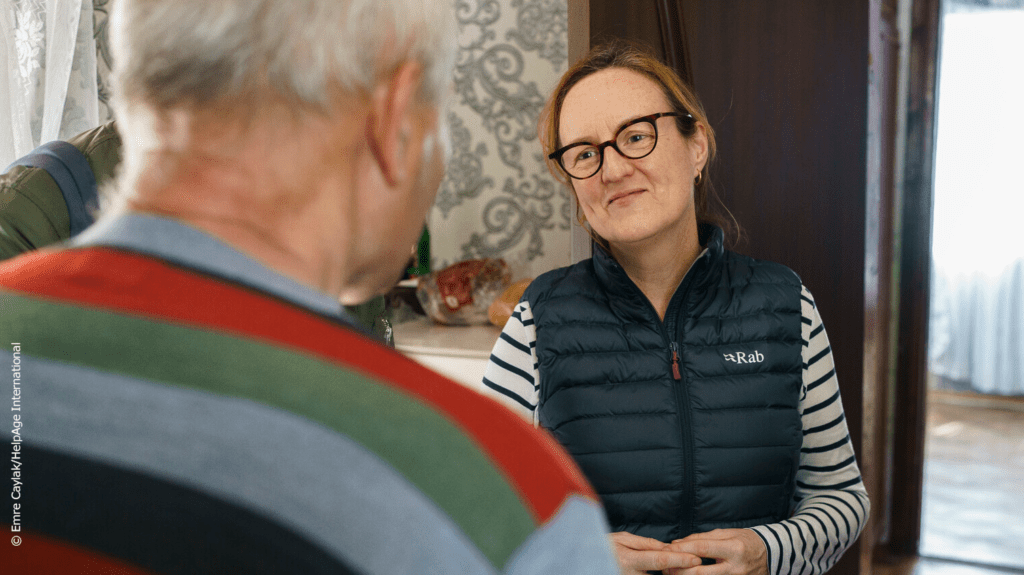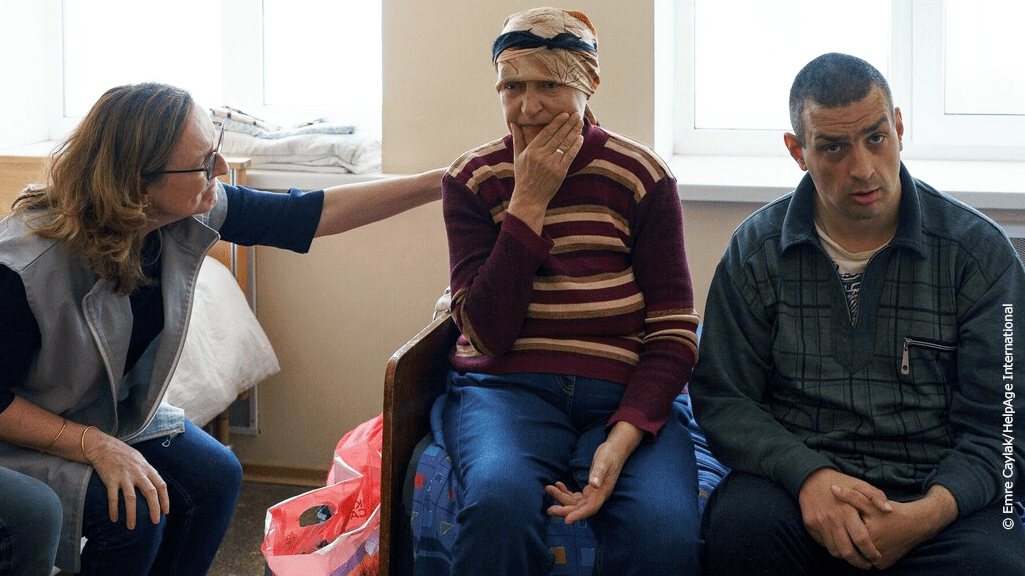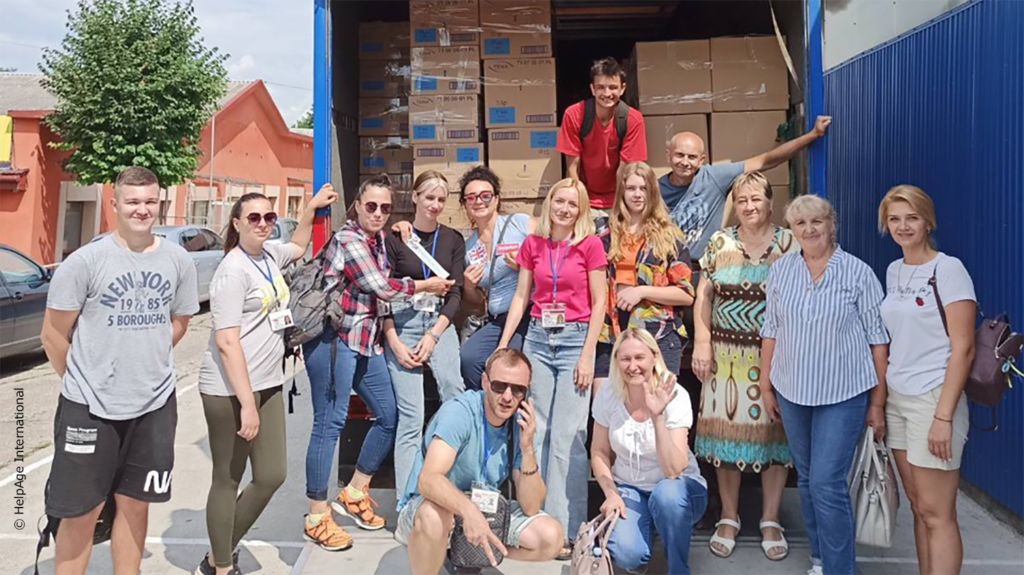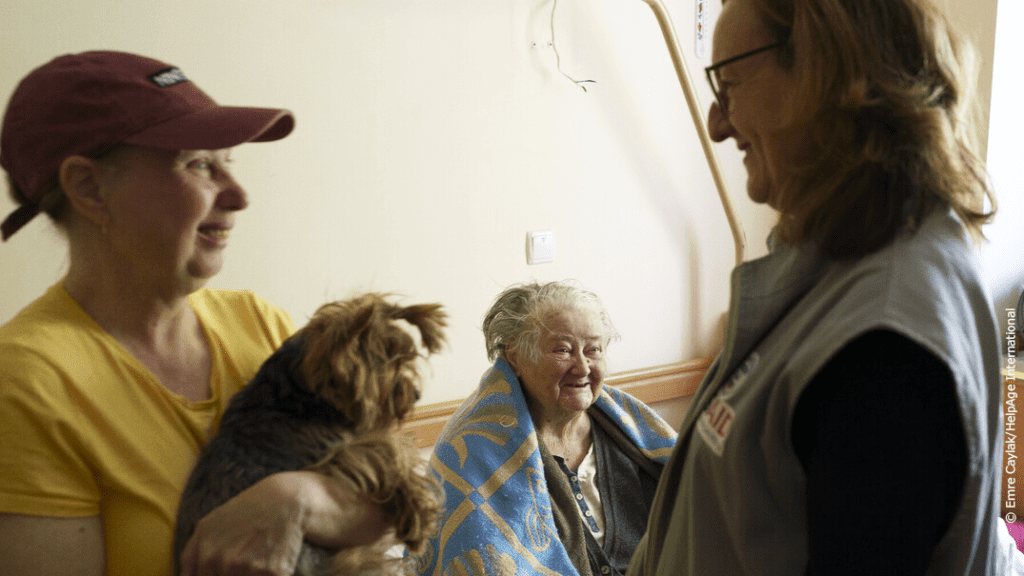HelpAge International’s Ukraine Humanitarian Response Manager, Orla Murphy, reflects on the past six months of full-scale war in Ukraine and the plans ahead to respond to the longer-term needs of those embroiled in a protracted war.

Just before February 24, everybody was preparing but nobody thought that an invasion was going to happen. Then it did.
This had a direct impact on our staff and volunteers who were mostly located in eastern Ukraine, where HelpAge International has supported older people since the conflict with Russia started in 2014.
They and millions of others became displaced. They moved to Lviv, to Dnipro, left the country. Some had no option but to leave older relatives behind.
The impact on them, as people and as humanitarians, was colossal. But they picked up what they could, crammed onto trains, and started working in new, areas: meeting different authorities, reaching out to other organizations to help those needing support, while also finding accommodation and getting up four times a night for the bomb shelter.

An Unprecedented Response
The wider response has been extraordinary. The volume of volunteers is changing the face of humanitarian action at a scale I have never seen before. They are setting up new organizations, providing food, clothes, shelter, and support.




